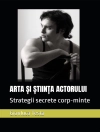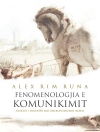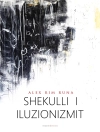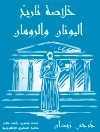Many of Kafka’s narratives place their heroes in situations of confinement. Gregor Samsa is locked in his room in the
Metamorphosis, and the land surveyor in
The Castle is stuck in the village unable either to leave or to gain access to the castle. Dimitris Vardoulakis argues that Kafka constructs these plots of confinement in order to laugh at his heroes’ futile attempts to express their will. In this way, Kafka emerges as a critic of the free will and as a proponent of a different kind of freedom: one focused within the confines of one’s experience and mediated by one’s circumstances. Vardoulakis contends that his sense of humor is the key to understanding Kafka as a political thinker. Laughter, in this account, is the tool used to deconstruct power. By placing Kafka in dialogue with philosophy and political theory, Vardoulakis shows that Kafka can give us invaluable insights into how to be free—and how to laugh.
Spis treści
Acknowledgments
A Note on Referencing Kafka’s Works
Preamble: Kafka’s Laughter
1. Kafka’s Cages: Laughter and the Free Will
Plots of Confinement and the Kafkaesque Laughter
The Separation of Freedom and Unfreedom: Augustine’s Invention of the Free Will
Freedom From: Negative and Positive Freedom
Laughter and Freedom: On Kafka’s Political Technique
The Cage and Its Relations: Laughter, Freedom, Ontology
2. The Abrahamic Laughter: The Topography of Freedom in “The Judgment” and
The Metamorphosis
Abrahamic Laughter: Between the Theological and the Political
Who Is Gustav Blenkelt? The Two Interpretations
The Transformation of the Ideal in “The Judgment”: The Primacy of the Theologico-Political
“The world of freedom” and Its Essential Fault: Blanchot’s Kafka
The Essential Transformation: Laughter in
The Metamorphosis
3. The Return of the Body: The Ethics of Laughter
Ethical Freedom: Levinas’s Critique of the Free Will
Ethical Laughter: The Nature Theater of Oklahoma
Regaining the Power to Say “One”: “A Report to an Academy”
The Other’s Laughter: “A Hunger Artist”
“The fall is the proof of our freedom”
4. The Law of Freedom: Reading
The Trial through Spinoza
A Cage without Walls: Kafka and Biopolitics
Spinoza’s Ethical Laughter: The Empty Law of the
Tractatus Theologico-Politicus
Empty Law without Truth: The Priest’s Discourse and Existential Torment
The Laughter of Truth: Josef K.’s Hesitation
Agamben’s Antinomianism: The Biopolitical Return of Theology
5. Executing Violence: The Drama of Power in “In the Penal Colony”
Two Executions: The Spectacle of Power
The Death Penalty and Sovereignty
The Tragedy of Modern Sovereignty and the Existential Drama of Biopolitics
The Economy of Substitution: Death and the Free Will
Generalized Violence as Ontology: Mirbeau’s
The Torture Garden
The Theater of Laughter: Secondary Characters Center Stage!
Toward an Ontology of Laughter: An Agonistic Economy of Freedom
Postscript: A Triple or a Single Will?
Notes
Bibliography
Index
O autorze
Dimitris Vardoulakis is Associate Professor of Philosophy at Western Sydney University, Australia. He has written and edited several books, including (with Andrew Benjamin)
Sparks Will Fly: Benjamin and Heidegger, also published by SUNY Press.












